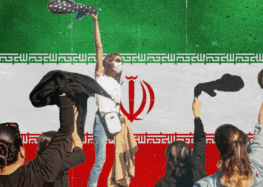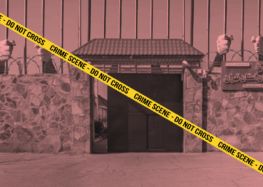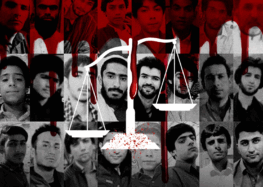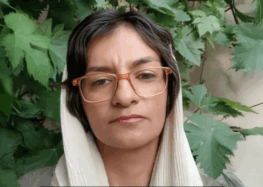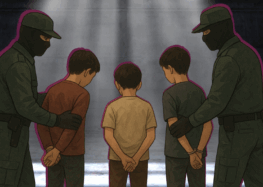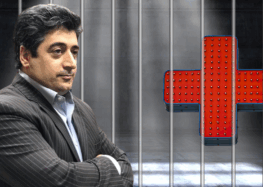Cartoon 34: Judicial Independence in Iran
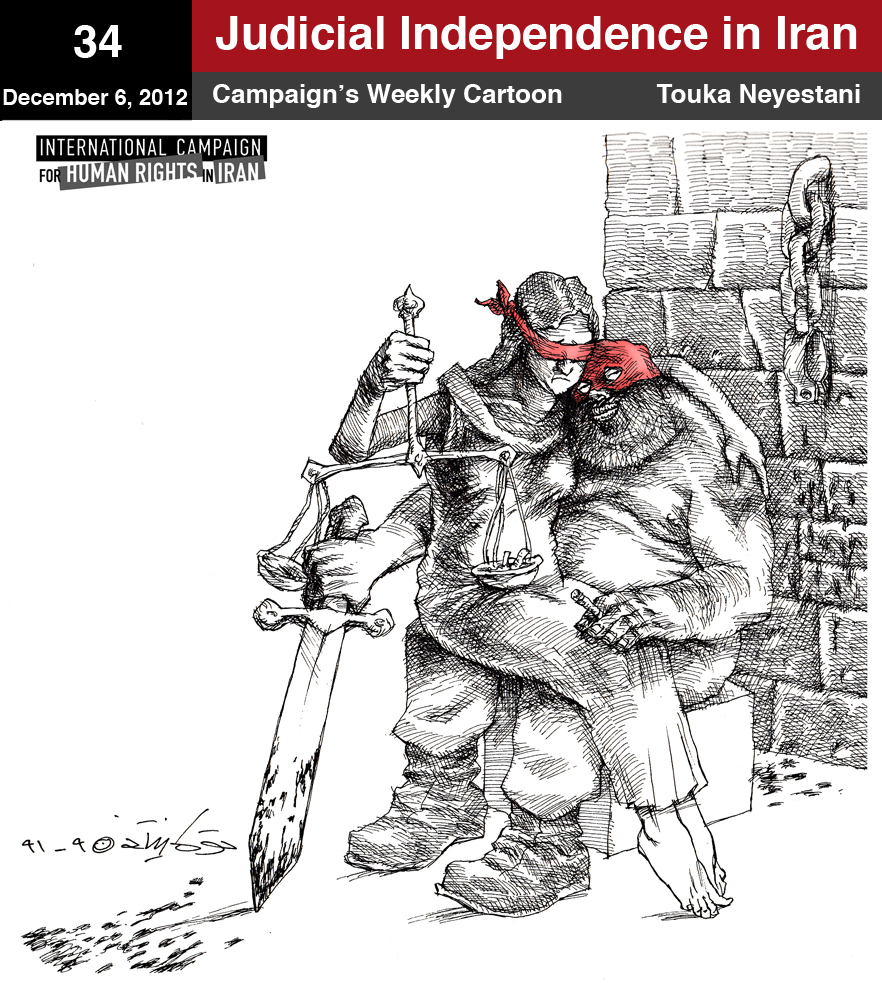
Cartoon 34: Judicial Independence in Iran
As Iran’s execution rate continues to skyrocket and its prisons suffer from intense overcrowding, the independence of its judiciary and legal systems is being called into question. In Evin Prison in Tehran, where most prisoners of conscience are held, there is an entire ward—Ward 209—overseen not by the Judiciary but rather by the Intelligence Ministry, whose minister answers directly to the Supreme Leader of Iran.
Nasrin Sotoudeh, the human rights lawyer who recently ended her 49-day hunger strike, is one of the prisoners of conscience held in Ward 209 of Evin Prison. In mid-November, her husband Reza Khandan highlighted the danger for a prisoner held in legal limbo in a ward that lacks judicial oversight, sent there by a Judiciary that lacks independence:
“Nasrin is in Ward 209. The Ward 209 authorities say that she is there but they take no responsibility. On the other hand, Evin officials say that they abdicated authority [to Ward 209]. . . . I have had an advance warning here: these authorities renouncing responsibility shows that if anything happens to her, they will abdicate any responsibility for that,” Khandan told the Campaign.
In his October 2012 report, the UN Special Rapporteur on human rights in Iran “express[ed] deep concerns over the effects of the Bill of Formal Attorneyship[, which] has the potential to produce a legal community governed by the views of the judiciary and the Government, rather than acting as an independent actor in defence of the rights of the people.”
The Special Rapporteur noted that the government of Iran “argued that ‘all prisons of the Islamic Republic of Iran are under direct supervision of prosecuting attorneys and their deputies. They may inspect prisons at any time and, at any case of infringement, they may sue violators.’ However, the Special Rapporteur continues to receive reports about disturbing prison conditions and treatment of detainees.”

